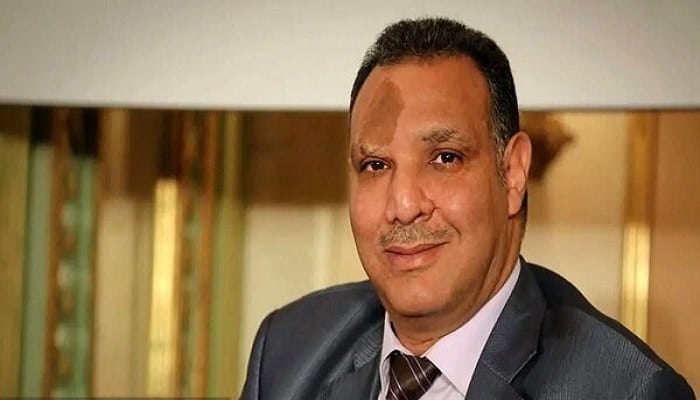PNN – The prominent Egyptian political analyst and sociologist believes that the ceasefire in Gaza is merely a temporary pause in the war and that the battle between the resistance and the Zionist regime will continue.
In an exclusive interview, prominent Egyptian political analyst and sociologist Mohamed Sayed Ahmed provides a detailed assessment of the Gaza ceasefire after nearly two years of war.
Sayed Ahmed argues that the agreement is merely a temporary pause. While the ceasefire has halted Israeli military operations, Ahmed says, it fails to address the core issues: occupation, displacement, and the Palestinians’ right to an independent state.
The full text of the interview is as follows:
How do you assess the importance of the Gaza ceasefire agreement after nearly 2 years of devastating war?
In my opinion, this agreement is very important because this is the longest war that the Zionist enemy has waged against the Palestinian people. For two whole years, we have witnessed the siege, destruction and attempts at a real genocide of the Palestinian people. Therefore, it was very crucial to stop the war and accept this agreement so that the Palestinian people and their resistance forces could breathe a new breath.
We know very well that the war is not over; the conflict with the Zionist enemy is about existence and survival, not borders. The ceasefire does not mean the end of the conflict, but simply a pause in it, and therefore, it was very important at this point in time. I believe that the Palestinian people, along with the resistance, have to some extent defeated the Zionist enemy.
Their stated goals were not achieved: the people were not displaced, and the resistance was not destroyed. This in itself is considered a victory for the resistance and the Palestinian people over the Zionist enemy.
Read more:
Gaza martyrs rise to 68,000; Israel continues to violate ceasefire
In your opinion, what were the main factors that forced the Zionist regime to accept this agreement at this particular point in time?
The Zionist enemy agreed to this agreement, because the continuation of the war had become unbearable and was under international and domestic pressure. The internal situation of the Zionists in the occupied territories deteriorated significantly. The settlers lived in a state of constant terror and threat for 2 years, and the morale of the occupying army reached its lowest level.
The settlers turned on Benjamin Netanyahu and confirmed that Tel Aviv could not achieve victory, so the war had to stop. These internal pressures, coupled with heavy economic, social, military and political losses, forced Tel Aviv to stop the war.
International public opinion also dealt a serious blow to the Zionists; not only Western governments, but also public sentiment was affected. Sympathy for the Palestinian people increased and awareness of the Palestinian cause spread.
Narratives that portrayed Palestinians as terrorists also collapsed; instead, Palestinians were seen as defenders of their homeland and those who had risen to assert their right to liberate the occupied territories. In contrast, Zionist narratives were weakened.
How do you evaluate Trump’s 20-point plan, which has sparked widespread debate in political circles?
My assessment is that Trump’s plan is a Zionist plan. This plan is in no way in the interest of the Palestinian people or the resistance. Many of its provisions are also unacceptable to the Palestinians; in fact, its goal is to destroy the capabilities of the resistance and establish an international or foreign government led by figures like Trump himself and Tony Blair.
Hamas’s response was smart and prevented the disarmament of the resistance. This response preserved Hamas as an actor and partner in the Gaza scene. I believe that Trump’s goals were not fully achieved because Hamas refused to accept disarmament or a sector under foreign control.
Some argue that the plan seeks to redefine the Palestinian issue without addressing the roots of the occupation or the right to an independent Palestinian state. Do you agree with this view?
I agree. This plan does not address the roots of the problem and does not give the Palestinian people the right to establish a state. This plan is mainly a pause to stop the bloodshed and create breathing space. The conflict with the Zionist enemy will continue, albeit in different stages.
We must use this time to rebuild Gaza, stabilize the situation of its people, reorganize the resistance and Palestinian factions, and strive for unity. Resistance is the only solution to confront this enemy, because this is a battle for survival, not borders.
The enemy continues to chant expansionist slogans “from the Nile to the Euphrates” and seeks to displace not only the Palestinians, but also the broader Arab population.
Trump’s plan would appoint Tony Blair to oversee a post-war government in Gaza. How is this proposal perceived in Egypt and the Arab world at large?
Tony Blair’s proposed role in running Gaza has been roundly rejected by Egypt and the Arab world. Egypt played a key role in shaping Hamas’ response and helped to reject the idea.
Egypt insists that the fate of Gaza should be determined by the Palestinians themselves, including all Palestinian factions. Hamas has categorically rejected foreign government management. Donald Trump accepted Hamas’ response, which had categorically rejected foreign management of the Gaza Strip.
Do you think Western oversight could weaken the role of the Arabs or undermine regional sovereignty in managing the Gaza issue?
I don’t think Western supervision will strengthen the Arab role, but rather weaken it. Gaza is central to the Palestinian cause. If Hamas were to agree to Western government management and disarm, the Palestinian cause would be effectively marginalized.
The main goals of the Gaza War, namely the displacement of Palestinians and the elimination of Hamas, were not achieved. As a result, the Palestinian project has survived and the resistance is still alive. The struggle can continue for the complete liberation of the occupied Palestinian territories.

